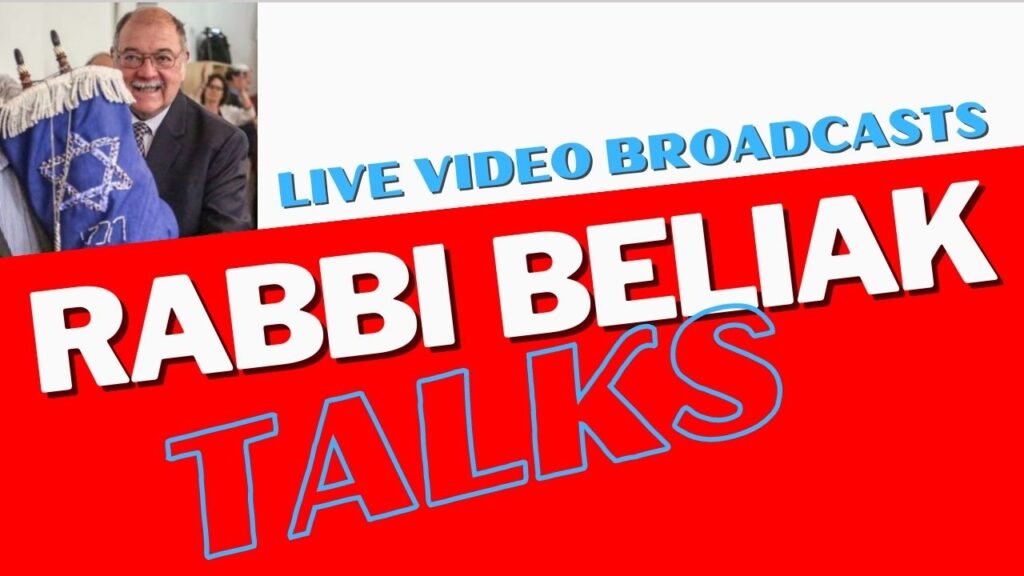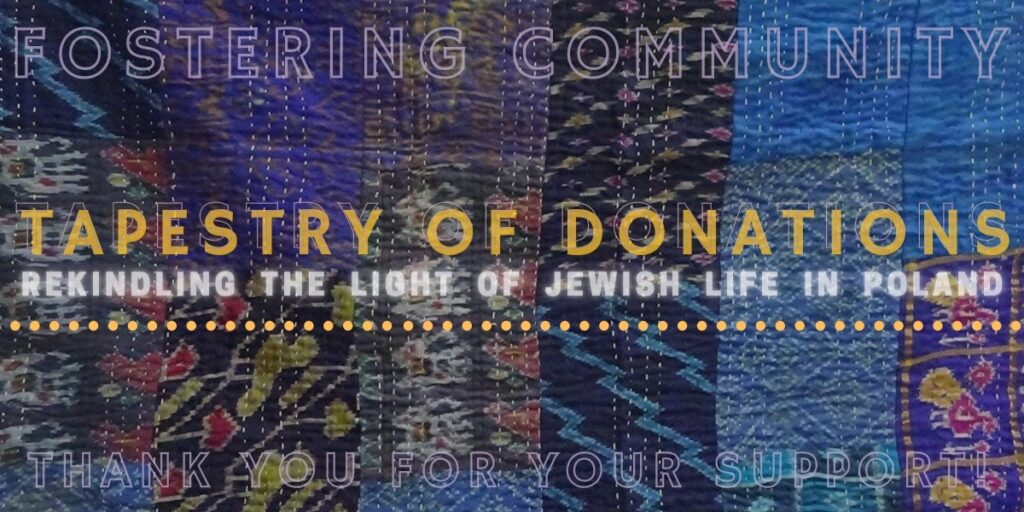Passover and Easter in Poland

Rabbi Haim Dov Beliak
In the unclassified American Embassy report (below) you will read with alarm the activities of a small town contravening the spirit and letter of John Paul II, the Polish Pope’s sharing of a family relationship between Judaism and Christianity. An American Ambassador is greeted with jeers when she delivers good wishes for both Passover and Easter. The crude nature of the two most recent expressions of anti-semitism from a mobilized segment of Poland’s population is frightening. After ten years of work in Poland, I know better than to condemn all Poles. The specific opinion leaders in Poland quoted in these dispatches are significant voices in Poland. The current government has devoted itself to blocking the education of its population by fostering conspiracies and systematically denying the history of Poland’s multi-ethnic past. Instead, many Poles are enamored with the dreams of an ethnically exclusive Poland that promises a world that makes Poland the poster-child for ethnonationalism. The PiS party’s center-right political leadership fears the even more right-wing and openly racist National Radical Camp (ONR). Many young Poles, lacking a critical education and are susceptible to the historical distortions and they are educated to have little civic courage.
Action Office: DAO, POL, PAS
Info Office: PAS_LES_INFO, POL_LES_INFO
MRN: 19 WARSAW 352
Date/DTG: Apr 23, 2019 / 231511Z APR 19
From: AMEMBASSY WARSAW
Action: WASHDC, SECSTATE IMMEDIATE
E.O.: 13526
TAGS: PHUM, OIIP, SCUL, KPAO, KIRF, PL
Reference: 19 Warsaw 177
Subject:POLAND: Ambassador’s Passover Tweet Triggers Wave of Anti-Semitic Responses
1. (U) Summary: A Passover holiday wishes tweet on Ambassador Mosbacher’s account generated over 1,500 comments, the vast majority negative and anti-Semitic in tenor. The furor was so notable the Associated Press (AP) wire service wrote a piece that was picked up widely in outlets such as the New York Times, Fox News, and a number of Israeli outlets. Post has requested that EUR/PD/Digital and IIP engage any analytical tools available to ascertain if the negative activity was truly fueled by Polish-based anti-Semitism or if malign actors were capitalizing on negative Polish right-wing narratives and attempting to sow discord in the U.S.-Poland bilateral relationship. End summary.
Engaging on Poland’s Jewish History
2. (U) On April 19, Ambassador Mosbacher attended a ceremony commemorating the 76th anniversary of the Warsaw Ghetto Uprising where thousands of Polish Jews perished. That evening, Mission Poland’s Digital Media Unit published a tweet celebrating Passover. Mission Poland, as part of a strategy addressing concerns about rising anti-Semitism in Poland, has utilized Public Diplomacy tools such as IVLP programs, teacher trainings, museum exchanges, and NGO partnerships to increase understanding and dialogue regarding Jewish issues and anti-Semitism.
“In Poland, we celebrate Easter, not Passover”
3. (U) On April 20, it was clear that the social media response was overwhelmingly negative. Online comments included: “You are the Ambassador to Poland, not Israel;” “In Poland we celebrate Easter, not Passover;” “Who are those wishes for? Not Poles I don’t think?” Ruling Law and Justice Party (PiS) Parliamentarian Krystyna Pawłowicz posted on Twitter: “This must be a fake account of the Ambassador. Somebody is trying to provoke us during this special time and prove that U.S. bases in Poland should not be created and that President Trump won’t come to Poland in the fall. Madame Ambassador, Jesus has risen. Alleluja!” Shortly thereafter, Pawłowicz posted a second tweet in a markedly different tone: “On the same day when we celebrate Easter Eve, Jews celebrate their Passover Holiday and Ambassador Mosbacher posted appropriate wishes. All the best from us as well. And we Catholics are cheering – Jesus has risen!”
From Easter Wishes to Burning Judas in Effigy
4. (U) On Easter morning – April 21 – the Embassy published a previously planned tweet on Ambassador Mosbacher’s account with traditional Easter wishes. However, the viral nature of the Passover tweet response had been noted by the Associated Press (AP) which published a factual piece noting the “wave of angry comments on Twitter.” The AP wire story was picked up by the Washington Post, Fox News, the New York Times, a number of Israeli outlets, and others. The story also noted Polish media reports of residents of Pruchnik in southeast Poland carrying out a tradition that was discontinued in Poland decades ago involving the hanging, beating, and burning of an effigy representing Iscariot Judas, but styled to look like an Orthodox Jew. (Note: The Polish Catholic Church banned this tradition years ago, and the Polish Episcopate released a statement condemning the event in Pruchnik. End Note.)
“Hate is not patriotism”
5. (U) By the afternoon of April 21, the trending sentiment on Twitter had changed. Leading journalists and influencers, ranging from left to center-right on the political spectrum, were commenting on how anti-Semitism is damaging Poland’s global reputation. Krzyszto Berenda, reporter for center-left RMF radio (3.5 million listeners) said, “The holiday is a good time to consider whether it is the best idea for life to be poisoned by a hatred of other people, nations, and religions. Hint: it’s a bad idea. Hate is not patriotism.” Michal Gostkiewicz, editor of center-right online portal wp.pl (13.8 million users) tweeted, “Commentary on Ambassador Mosbacher’s Passover wishes are a nightmare of Catholic-Polish anti-Semitism. ‘Why wishes for the Jews and not us?’ Catholics – Easter is tomorrow. And who doesn’t understand from where these wishes come doesn’t understand anything about U.S.-Israel relations and the U.S. government.” Lukasz Rogojsz, reporter from left-leaning Gazeta.pl (8.7 million users) remarked, with a screenshot of the Washington Post coverage, “You thought what you wrote under the Ambassador’s tweet would be echoed? You thought wrong.” Notably, no Polish government officials engaged on Twitter regarding the news coverage or the Ambassador’s tweet.
Anti-Semitism Damages Poland’s Reputation
6. (U) To date, overall reach of the tweet, including social and traditional media, is estimated to be 15,285,100people. The tweet and anti-Semitic reactions to it were covered by most Polish media, including online (wp.pl,NaTemat, Gazeta.pl, wPolityce, Salon24), TV (Telewizja Republika, Polsat News), and print (WPROST,Rzeczpospolita, Gazeta Wyborcza, as well as international media including U.S.-based (The New York Times, ABC News, Fox News, Washington Post, News Observer, Miami Herald) and Israeli-based (Israel National News, Times of Israel and Israel Hayom,) Russian (RT and Sputnik) and other international outlets.
7. (U) The vast majority of the media reporting on this tweet was focused on the flood of anti-Semitic comments below the Ambassador’s tweet with Passover wishes. Among the most repeated angles by the media are: “After what happened on Friday evening, it will be very hard for Poles to fight against their anti-Semitic and xenophobic reputation,” and “The vast majority of those attacks are simply vulgar, include words and phrases straight from the Nazi era, and are not even appropriate to be quoted by decent people” (Na Temat). But there are also articles in the right wing online media, such as nczas.com, that brought up restitution issues, a sensitive subject between Poland and Germany: “Madame Ambassador, we would like to remind you that the majority of citizens of this country are currently preparing for the upcoming Easter holiday. But maybe Georgette Mosbacher is already setting the stage for future negotiations regarding undue restitution?” (Ref A).
Where Do We Go From Here?
8. (U) Comment: Tragic Easter events in Sri Lanka quickly consumed the news cycle, and focus on the Ambassador’s Passover tweet waned. However, the incident underlines how critical it is for Mission Poland to proactively create programming to combat anti-Semitism and engage with Polish civil society, academia, and the government to educate the public on this issue. The recent incidents also highlights possible areas that malign actors will seek to exploit and divide Polish society against the U.S. Post will continue to create appropriate social media messaging in support of our strategy to combat anti-Semitism and utilize opportunities like that created by the Passover tweet to increase dialogue on these critical issues.


Leave a Reply